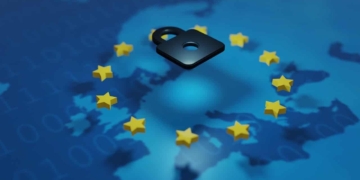No products in the cart.
Introduction
In today’s digital world, the protection of personal data is crucial. A privacy policy is a document that contains information about how a company or organization collects, uses, and protects personal information. In this article, we will take an in-depth look at the importance of privacy statements and explain what content must be included in a privacy statement.
Key Facts
- Data protection declarations are a legal document that informs users about the collection and processing of their personal data.
- GDPR obliges organizations to provide a privacy policy in order to avoid legal consequences.
- The declaration promotes trust and transparency between users and organizations with regard to data security.
- Important content includes the identity of the controller, the purposes of data processing and the legal basis for data processing.
- The declaration must explain the rights of users to access, correct and delete their data.
- If data is transferred to third countries, security measures must be set out in the privacy policy.
- Changes to the privacy policy must be documented and communicated to users.
What is a privacy policy?
A privacy policy is a legal document that an organization or website operator must provide to inform users about what personal data is collected, how that data is used, and what rights users have with respect to their data. Privacy statements are required by law in many countries and are designed to protect users’ privacy and provide transparency about how their data is handled.
Why is a privacy policy important?
Legal requirements
In many countries, including the European Union through the General Data Protection Regulation (GDPR), privacy statements are required by law. Failure to comply can result in significant fines and penalties.
Trust and transparency
A clear and understandable privacy policy can increase users’ trust in an organization. Users want to know that their data is secure and how it will be used.
Control for the user
A privacy statement provides users with information about what rights they have with respect to their personal data, including the right to access, rectify and delete their data.
What content must be included in a privacy policy?
Identity of the responsible person
The privacy policy must contain information about who is responsible for the processing of personal data. This includes the name and contact details of the organization or website operator.
Data processing purposes
It must be clearly stated for which purposes personal data are collected and processed. This may be, for example, the provision of services, marketing or improvement of the website.
Legal basis
The privacy statement must indicate the legal basis for the processing of personal data. This can be the consent of the user, the fulfillment of a contract or a legitimate interest.
Recipient of the data
If data is disclosed to third parties, the privacy statement must contain information about who these recipients are and for what purpose the data is disclosed.
Storage duration
Information on how long personal data is stored or criteria for determining this duration.
Rights of the data subjects
The privacy statement must explain the rights of users in relation to their personal data, including the right of access, rectification, erasure, restriction of processing, objection to processing and data portability.
Data transmission to third countries
If personal data is transferred outside the European Economic Area, the privacy statement must contain information about the security measures taken to protect the data.
Automated decision making and profiling
If the organization uses automated decision making, including profiling, the privacy statement must include information about how these decisions are made and what impact they may have on users.
Security measures
Information about the measures taken to ensure the security of personal data.
Right of complaint to a supervisory authority
Users must be informed that they have the right to lodge a complaint with a data protection supervisory authority if they believe that the processing of their personal data violates data protection law.
Cookies and tracking technologies
If the website uses cookies or similar tracking technologies, the privacy policy must include information about what types of cookies are used and how they can be managed by the user.
Changes to the privacy policy
Information on how and when the privacy policy will be updated and how users will be notified of changes.
Consent
If the data processing is based on the user’s consent, the privacy policy must contain information on how consent can be revoked.
Critical view
While privacy notices are an important step in protecting user privacy, it is important to note that not all organizations necessarily adhere to the practices outlined in their privacy notices. Users should therefore be vigilant and take a critical look at the privacy practices of websites and services.
Conclusion
A privacy policy is an essential document that provides transparency about how an organization handles personal data. It is not only a legal requirement, but also helps to build trust with users and give them control over their data.



















